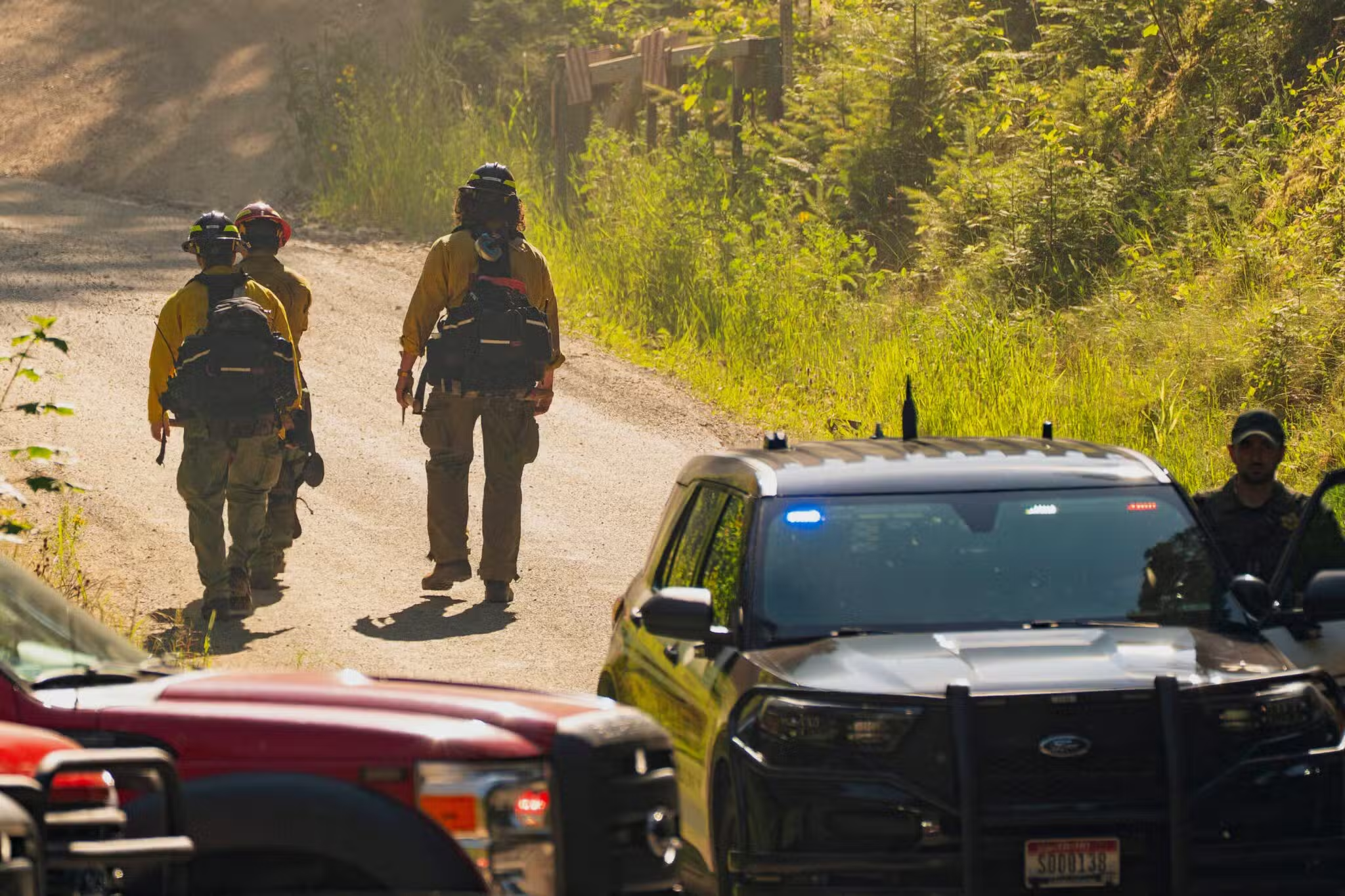VATICAN CITY (CNS) — Too often the voices of people fleeing their homes due to climate change and extreme weather patterns are overshadowed by an abundance of scientific data and statistics, said a Caritas Internationalis official.
“It is crucial that we listen to their stories and experiences and make sure that these are incorporated into the policy-making process,” Alfonso Apicella, global campaigns manager, said at a news conference Oct. 26.
To get those voices and insights into the public arena and effect policy-change, the Vatican-based Caritas Internationalis released its own report drawn from the experiences of individuals and countries most affected by climate change. A confederation of 162 national Caritas organizations in 200 countries and territories, Caritas collected the evidence from its member organizations, which are serving people displaced within and across country borders due to climate change.
Titled “Displaced by a Changing Climate: Caritas Voices on Protecting and Supporting People on the Move,” the report was part of Caritas’ global “Year of Action” campaign called “Together We,” which promotes integral ecology and the need for collective action to address the consequences of environmental degradation.
The action campaign runs from October 2023 to October 2024 and seeks to “elevate the first-hand accounts and demands of people and communities affected by environmental degradation” through a yearlong letter-writing initiative, Apicella said.
“We will do this by providing a platform on togetherwebelong.caritas.org,” he said, “so people can share their stories and struggles by writing a message on how we can find solutions together: that is the key message of our new campaign of action.”
“The insights that we aim to gather, as well as those presented in our publication today, are not just stories, they are a blueprint for change,” he said since they will channel the information in a way to influence “leaders, decision makers and policy actors to design and formulate solutions together.”
Cécile Stone, lead author of the research for the report, said, “On average over the past 10 years, 20 million people per year were displaced by sudden-onset weather events, such as storms, floods, wildfires — that’s twice as many as displaced by conflict.”
“Over 3 billion people live in countries that are highly vulnerable to climate change,” she added.
“People are better off if they can move or plan to move early on. So that’s why governments need to facilitate proactive migration rather than just let reactive migration happen when other forms of adaptation are failing,” she said.
Alistair Dutton, secretary-general of Caritas Internationalis, said policy decisions must “start to build in the planning and response to what is going to come” as climate change gets worse and more people are forced to migrate.
“Otherwise, our failure to act on our moral responsibility for our poorest and most vulnerable will create a problem on our own doorsteps that we have not the means to respond to,” he said.
By Carol Glatz | OSV News







News & Commentary
Caritas: Voices from climate change migrants can be ‘blueprint for change’
VATICAN CITY (CNS) — Too often the voices of people fleeing their homes due to climate change and extreme weather patterns are overshadowed by an abundance of scientific data and statistics, said a Caritas Internationalis official.
“It is crucial that we listen to their stories and experiences and make sure that these are incorporated into the policy-making process,” Alfonso Apicella, global campaigns manager, said at a news conference Oct. 26.
To get those voices and insights into the public arena and effect policy-change, the Vatican-based Caritas Internationalis released its own report drawn from the experiences of individuals and countries most affected by climate change. A confederation of 162 national Caritas organizations in 200 countries and territories, Caritas collected the evidence from its member organizations, which are serving people displaced within and across country borders due to climate change.
Titled “Displaced by a Changing Climate: Caritas Voices on Protecting and Supporting People on the Move,” the report was part of Caritas’ global “Year of Action” campaign called “Together We,” which promotes integral ecology and the need for collective action to address the consequences of environmental degradation.
The action campaign runs from October 2023 to October 2024 and seeks to “elevate the first-hand accounts and demands of people and communities affected by environmental degradation” through a yearlong letter-writing initiative, Apicella said.
“We will do this by providing a platform on togetherwebelong.caritas.org,” he said, “so people can share their stories and struggles by writing a message on how we can find solutions together: that is the key message of our new campaign of action.”
“The insights that we aim to gather, as well as those presented in our publication today, are not just stories, they are a blueprint for change,” he said since they will channel the information in a way to influence “leaders, decision makers and policy actors to design and formulate solutions together.”
Cécile Stone, lead author of the research for the report, said, “On average over the past 10 years, 20 million people per year were displaced by sudden-onset weather events, such as storms, floods, wildfires — that’s twice as many as displaced by conflict.”
“Over 3 billion people live in countries that are highly vulnerable to climate change,” she added.
“People are better off if they can move or plan to move early on. So that’s why governments need to facilitate proactive migration rather than just let reactive migration happen when other forms of adaptation are failing,” she said.
Alistair Dutton, secretary-general of Caritas Internationalis, said policy decisions must “start to build in the planning and response to what is going to come” as climate change gets worse and more people are forced to migrate.
“Otherwise, our failure to act on our moral responsibility for our poorest and most vulnerable will create a problem on our own doorsteps that we have not the means to respond to,” he said.
By Carol Glatz | OSV News